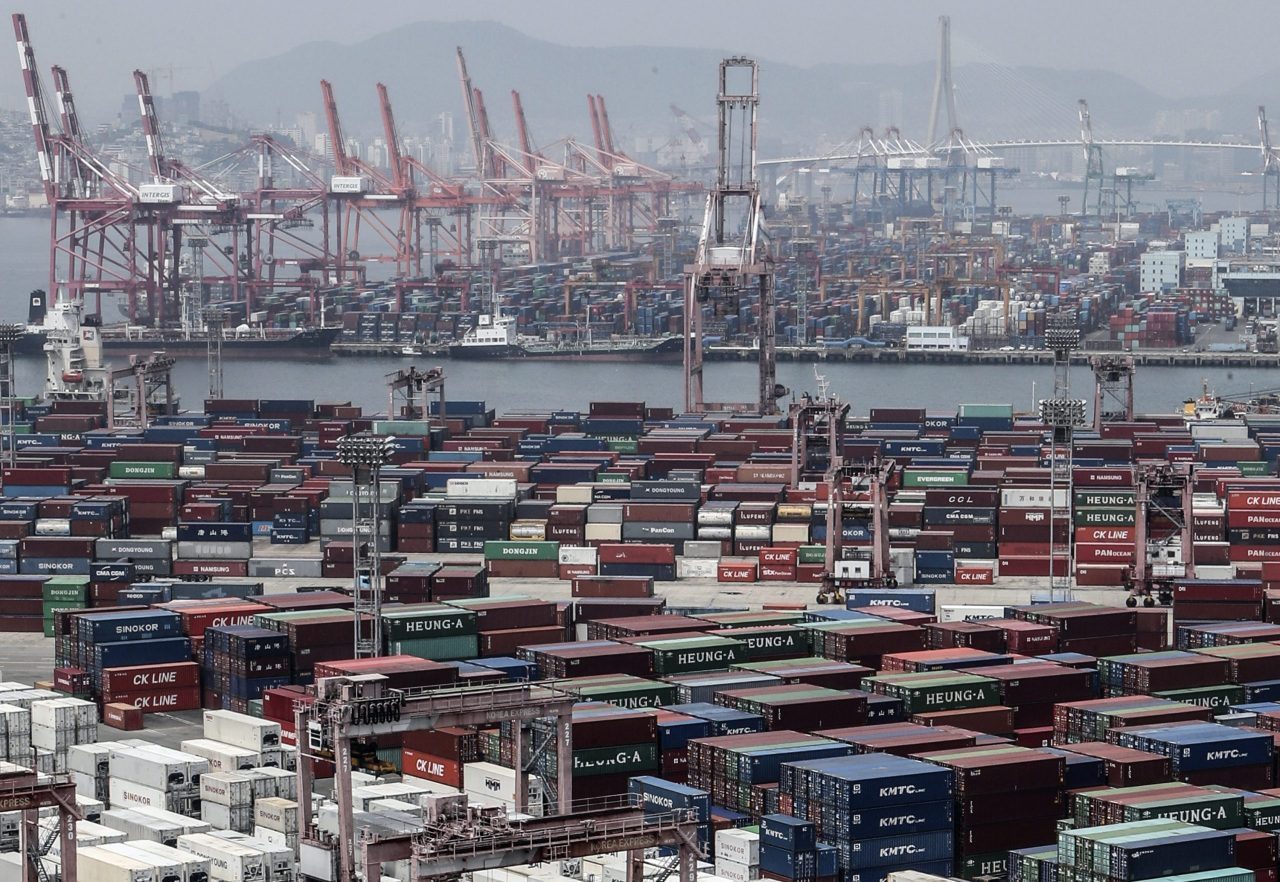
This file photo, taken June 4, 2020, shows stacks of import-export cargo containers at South Korea's largest seaport, located in Busan, 450 kilometers southeast of Seoul. (Yonhap)
South Korea's central bank on Friday held its policy rate unchanged at a record low of 0.5 percent, as the fallout from a third wave of the new coronavirus hurt the scope of maintaining an economic recovery.
As widely expected, the monetary policy board of the Bank of Korea (BOK) voted to leave the base rate steady in this year's first rate-setting meeting.
In November last year, the BOK froze the key rate as economic uncertainty heightened amid a flare-up in new coronavirus cases.
To bolster the pandemic-hit economy, the BOK slashed the key rate to an all-time low of 0.5 percent in May last year after delivering an emergency rate cut of half a percentage point.
Analysts said economic uncertainty has increased as daily new virus cases have recently hovered around 1,000, although health authorities said the third wave appeared to have slowed down.
Buoyed by ample liquidity and cheap loans to fight the pandemic, South Korea's benchmark stock index jumped about 30 percent last year.
BOK Gov. Lee Ju-yeol warned that the central bank is watching risks of financial imbalances, saying the speed of a stock rally was too quick.
However, it is too early to talk about the BOK's normalization of its monetary policy, Lee told reporters.
Lee said Friday's rate-freeze decision was unanimous.
In a statement, the BOK said it will maintain the easing of monetary policy to prop up the economy, while paying more attention to financial stability.
"The Korean economy has continued to recover modestly. Although private consumption has contracted due to the recent coronavirus resurgence, facilities investment has continued to recover and export growth has increased, led by the IT sector," the BOK said.
The BOK said it "will continue to conduct monetary policy in order to support the economy and stabilize consumer price inflation at the target level over a medium-term horizon, while paying attention to financial stability."
"In this process the board will thoroughly assess developments related to COVID-19 as well as the effects of the policy measures taken in response to the pandemic, while paying attention to changes in financial stability conditions such as fund flows to asset markets and household debt growth," it said.
Despite signs of recovery in exports, weaker consumer spending has weighed on employment and built pressure on policymakers.
For December last year, the monthly exports advanced 12.6 percent on-year to reach $51.4 billion. It marked the first time since November 2018 for the export volume to surpass the $50 billion mark.
Earlier this week, South Korea reported the largest job loss in December last year since 1999 as the pandemic pummeled the job market.
For the whole of 2020, the country also shed the largest number of jobs in 22 years, when the country was in the midst of the 1997-98 Asian financial crisis.
Driven by signs of a modest recovery in exports, the BOK revised up its 2020 economic growth outlook to a 1.1 percent contraction in November last year, compared with a previous forecast of a 1.3 percent retreat.
The BOK expected the economy to grow 3 percent in 2021, more than a previous forecast of 2.8 percent expansion.
South Korea's low inflationary pressure and rising housing prices also appeared to prompt the BOK board to stand pat, analysts said. (Yonhap)






